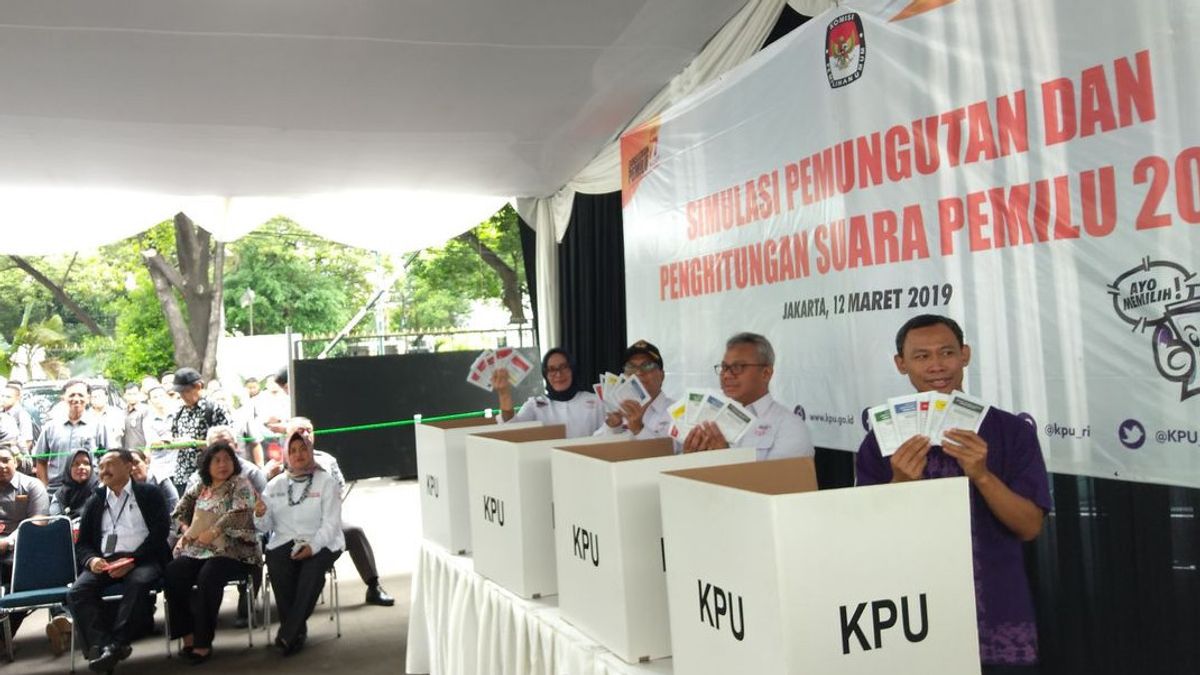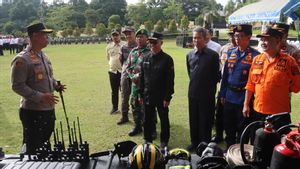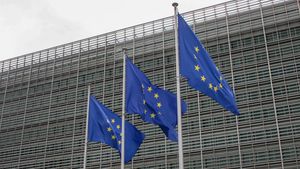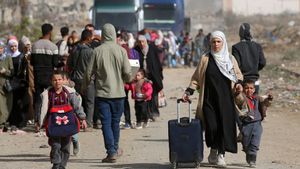JAKARTA - Epidemiologist from Australia's Griffith University Dicky Budiman views that the Indonesian government is desperate for carrying out the 2020 Pilkada when the crisis due to the COVID-19 pandemic is still happening and the positivity rate (percentage of positive people) compared to the number of tests reaches 14 percent.
"Yes (reckless, red). So this is a very big risk, yes, with this high positivity rate, then holding an activity involving the masses is automatically difficult to control in terms of maintaining distance, wearing masks," Dicky told VOI, Thursday, September 10. .
"This means that the potential for clusters to occur is very high. It's just a matter of time. If you see this from several activities, it looks like a complete neglect of health protocols," he added.
This statement could be true. After the registration stage for regional head candidates was carried out, in Boyolali Regency, for example, there were 96 Election Supervisory Agency officers who tested positive for COVID-19. Furthermore, the Coordinating Minister for Political, Legal and Security Affairs (Menko Polhukam) also announced that there were 59 regional head candidates in 21 provinces who tested positive for COVID-19.
Returning to Dicky, he said, there were a number of countries that succeeded in holding elections during the pandemic, including South Korea, which has always been the government's reference.
However, what needs to be remembered at that time was South Korea's positivity rate of around 1 percent, meaning that it was far below the WHO standard of 5 percent.
This is different from the condition of Indonesia, where the positivity rate is actually above that standard and the obedience of the people is not the same as the people of South Korea.
So, Dicky asked the government to evaluate the implementation of the 2020 Pilkada. This evaluation, he said, must be made thoroughly including the mechanism by cooperating with experts in the health sector. After evaluation, improvements must be made immediately.
He agrees that this democratic party is an important celebration for the people to elect their regional head. "But there needs to be a safer mechanism that must be done," he said.
Moreover, most election participants are those who are elderly and have comorbid diseases so that the risk is higher when contracting COVID-19. So that the government and organizers together with experts must indeed sit together to find solutions for the Pilkada in the midst of a pandemic.
"There must be a solution that wins the health sector without reducing the objective of implementing the pilkada," he said.
Previously, even though it was feared that it would cause a new COVID-19 cluster, the government said that the 2020 Pilkada could no longer be postponed.
According to the Head of Legislation at the Directorate General of Regional Autonomy of the Ministry of Home Affairs Saydiman Marto, although the option for postponement is regulated in Law Number 6 of 2020 concerning the implementation of regional elections during the COVID-19 pandemic, there are several considerations that prevent this from being done.
"I do not say that the 2020 Pilkada cannot be postponed because this is an agreement of all stakeholders. However, there are some logical and realistic considerations that may illustrate why the regional elections should be held," Saydiman said in a webinar discussion, Wednesday, September 9.
Saydiman said, the term of office of regional heads in 270 regions that participated in the 2020 Pilkada will end at the beginning of next year. When the election is postponed again, it means that the leadership in the area will be filled by the Acting (Pj) as long as the term of office of the regional head expires and does not have a new regional head.
However, this acting or temporary official has limitations, namely they cannot make strategic decisions and execute a policy. In fact, this is necessary in dealing with a pandemic.
"The limitation is that an official occupies two government positions. At the same time, it is difficult to concentrate on the existing (temporary regional head) position in addition to the definitive position that is held," he said.
Meanwhile, Minister of Home Affairs Tito Karnavian said that his party is currently working on disqualification rules for regional head candidates found to have violated health protocols. This was done with the aim of preventing the Pilkada clusters from occurring.
"Apart from admonishing us, we have also conveyed the possibility of discussing the existence of a disqualification rule. It could happen for example by making PKPU or other necessary things," he said after holding a coordination meeting with the Coordinating Minister for Political, Legal and Security Affairs (Menko Polhukam) Mahfud MD and a number of parties including Pilkada organizers namely KPU and Bawaslu.
The English, Chinese, Japanese, Arabic, and French versions are automatically generated by the AI. So there may still be inaccuracies in translating, please always see Indonesian as our main language. (system supported by DigitalSiber.id)












